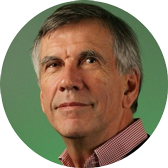Governing Mega-science Projects: The Square Kilometre Array Journey from "Grassroots" to the World´s Largest Radio Telescope
The Square Kilometre Array (SKA) project is an international effort to build the world’s largest radio telescope with eventually over one square kilometre (one million square metres) of collecting area spread out over thousands of kilometres in Africa and Australia. It began in 1993 as a “grass-roots” endeavour in the radio astronomy community pooling ideas and resources from across the world, and is now in the final stages of design with construction of the first phase due to start in 2020.
- Event Time
- 1 Mar 12:00 - 1 Mar 13:00
- Event Location
- Room 3.006a, Alliance Manchester Business School, Booth Street West, Manchester M15 6PB
- Event Type
- Business speakers
The Square Kilometre Array (SKA) project is an international effort to build the world’s largest radio telescope with eventually over one square kilometre (one million square metres) of collecting area spread out over thousands of kilometres in Africa and Australia. It began in 1993 as a “grass-roots” endeavour in the radio astronomy community pooling ideas and resources from across the world, and is now in the final stages of design with construction of the first phase due to start in 2020 at a cost of €650 million. The full SKA is likely to cost several billion €.
Coordination of the effort has evolved from a Working Group in 1993 to a UK Company Limited by Guarantee currently, but this will transition to an Intergovernmental Organisation in 2020 with Headquarters at The University of Manchester’s Jodrell Bank Observatory in Cheshire. It is one of the largest scientific endeavours in history with 10 member countries in the SKA Organisation and around 100 organisations across 20 countries participating in the design and development of the SKA.
In this talk, Richard will cover the following topics:
- challenges for global mega-science projects
- governance and mega-science projects
- the development of the SKA from a “global” community project to an Intergovernmental Organisation, focussing on the evolving governance structure lessons learned, successes and challenges.
About the speaker

Richard Schilizzi is Emeritus Professor of Astrophysics at the University of Manchester in the UK. He obtained his Ph.D. in Radio Astronomy from the University of Sydney in 1973. After a post-doctoral fellowship at the California Institute of Technology, he joined the Netherlands Foundation for Research in Astronomy in 1976 and played a leading role in building the European VLBI Network (EVN) over the following decades. From 1991 to 2008, he held a concurrent position as Professor in Radio Astronomy at Leiden University.
In 1993 he was appointed foundation Director of the Joint Institute for Very Long Baseline Interferometry in Europe (JIVE) and established JIVE as the central data processing and support institute for the EVN. In 2003 he became the first Director of the International Square Kilometre Array (SKA) Project to build the world’s largest radio telescope. He led the SKA project for nine years from its early days as a research concept to the point where it had become a well-supported global project and a legal entity. At the end of 2011, he joined the University of Manchester to establish the SKA Group in the University and lead design work in signal transport for the SKA, a position he held for two years.

